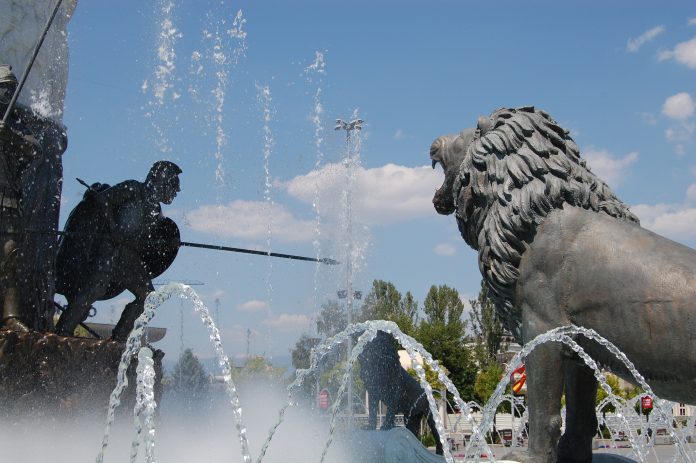In recent weeks the attention of the world, understandably, was turned to the meeting between US President Donald Trump and North Korea leader Kim Jong Un. However, at the same time developments in the Balkans have also moved forward and rightly deserve our attention. While the leaders of nuclear states were meeting in Singapore to supposedly and hopefully strike a deal to denuclearize the Korean peninsula, Skopje and Athens were busy striking a breakthrough deal of their own. According to reports from both countries, the two governments have finally agreed upon a new name for the Former Yugoslav Republic of Macedonia, which means that Greece will no longer use its veto power to block its northern neighbour’s accession to NATO, and the country can also now begin talks with the EU.
While Greece did not have any name or identity issues while its neighbor was part of Yugoslavia, they began to emerge after Skopje’s independence from the federation. This led to a situation where the FYROM was left in somewhat of a limbo for over two decades. Moreover, the leaders such as Nikola Gruevski, from Prime Minister, did not in any way help the situation. During his party’s, VMRO-DPMNE, decade-long rule Skopje engaged in a series of provocations that resulted in self-isolation and poor relations with neighbouring countries. Under the government of Zoran Zaev, however, the country adopted an ambitious endeavor to mend this. The coalition government first sought to strike a landmark friendship treaty and then embarked on renaming sites in the country that were seen as provocative, such as ‘Alexander the Great Airport’ which is now International Airport Skopje.
However, these provocations now appear to be a thing of the past and while both Alexis Tsipras and Zoran Zaev still have the challenging tasks to convince their coalition partners to adopt the deal, the value of this agreement cannot be overstated. It does not have a positive impact only on bilateral relations, and the region, but also on the international level. It is to be emphasized that Skopje’s alignment with the EU and NATO, and future membership, will undoubtedly strike a blow to Russia’s ambitions in the region. Moscow has been actively exercising its influence in the region both through soft power and hybrid means. The Kremlin greatly benefited from the name dispute between the two Balkan countries. Now, however, its opportunities to exercise influence will be even further limited.
At the same time, the news for the name agreement could not have come at a better time for the EU. On one hand, it is a great follow-up to last year’s Montenegro accession to NATO. With Macedonia also being closer to membership in the Alliance than ever before, these developments will undoubtedly contribute to the stability and prosperity of the entire region. Moreover, while EU accession will undoubtedly take some time, it is now more realistic. On the other hand, this deal comes at a time of strained relations between Brussels and Washington. This might improve the overall atmosphere among allies, as it will necessitate cooperation for Skopje’s admission on the two organizations.
In light of these developments, Bulgaria was quick to announce that it welcomed the fact that it’s two neighbors have come to an agreement. However, it was also announced that Sofia will be seeking guarantees. ‘North Macedonia’ is a geographical term and Bulgaria has its own region ‘Pirin Macedonia’ in the Southwest. Bulgaria’s Foreign Minister, Ekaterina Zaharieva, stated the Sofia will be seeking concrete guarantees that Skopje will not have cultural, historical or geographical aspirations. At the same time, the Bulgarian Socialist Party also demanded that such assurances be put on paper. Thus, while Sofia will in no way seek to derail the resolution of the name-dispute, it will be doing something which Athens arguably should have been pursuing all the long.
One of the biggest concerns regarding the Name of FYROM is that if it were to be recognized as Republic of Macedonia, it would have a claim over regions in neighbouring countries. Additionally, article 49 of Macedonia’s constitution, which will be undoubtedly amended, states that ‘The Republic cares for the status and rights of those persons belonging to the Macedonian people in neighbouring countries, as well as Macedonian expatriates, assists their cultural development and promotes links with them.’ This raised concerns that Skopje could at some pursuit some form of irredentism or even, if willing, to cause social unrest in Greece and Bulgaria.
While such concerns are valid, particularly under nationalistic governments in Skopje as was the case of VMRO DPMNE, it would have been much easier for Greece to pursue constitutional changes, as opposed to changing the name of its northern neighbor. This would have undoubtedly secured it wider international support and would have placed the pressure on Skopje. Arguably, it could have even given more leverage to Athens, as it would have enjoyed enormous support from allies and no one would see anything wrong with wanting guarantees for your security and prosperity from your next-door neighbour.
In any case Athens and Skopje agreeing on a name is a very positive development – for FYROM, Greece, the Balkans, the EU, and NATO. This will undoubtedly enhance stability in the region and will keep the West focused on developments and reforms in the region. Nevertheless, Republic of North Macedonia still has a lot of work before EU and NATO accession. The government of Zoran Zaev needs to continue with reforms and continue building on good neighbourly relations. It is truly remarkable that within a couple of years Skopje moved from the severe social unrest, to reaching such an important historical breakthrough.
Prof. Stefan Hadjitodorov, Director of the Center for National Security and Defense Research at the Bulgarian Academy of Sciences.
Martin Sokolov, expert at the Centre for National Security and Defece Research at the Bulgarian Academy of Sciences, researcher at Sofia Security Forum.

